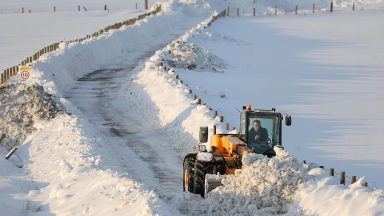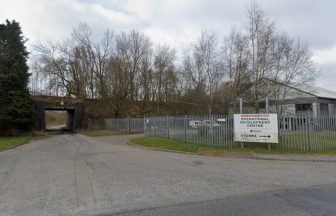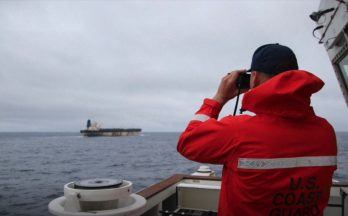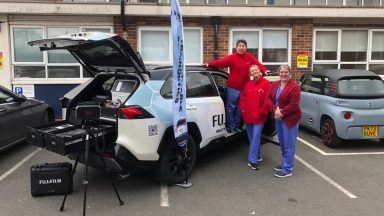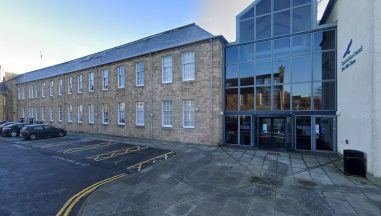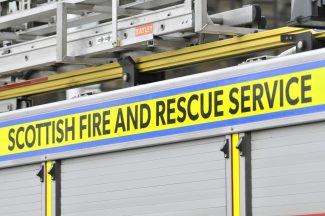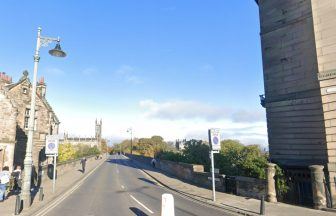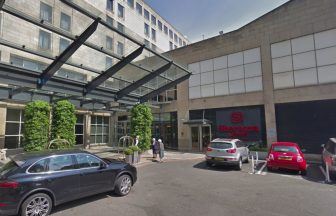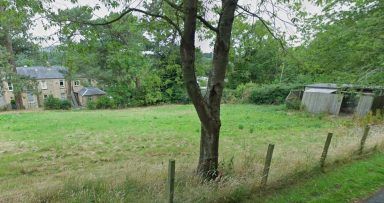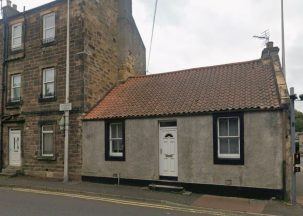A “far greater” number of children could be affected by sub-standard hearing tests than previously thought.
An audit into NHS Lothian found significant failures in 155 of the 1,113 patients treated between 2009 and 2018, which led to children being identified as deaf years later than they should have.
But several law firms say many more families have been affected.
The report by the British Academy of Audiology (BAA) also found systemic failings within NHS Lothian’s paediatric audiology service that led to babies and children being undiagnosed or experiencing significant delays in diagnosis and treatment.
Rachel O’Neill from Edinburgh University, who trains the teachers of the deaf in Scotland, told STV News it was an “emergency situation”.
She said: “There could be 23,000 children affected across Edinburgh and the Lothians – the health board is trying to hold back the tide because it could become overwhelming.
“NHS Lothian has been trying to keep a lid on the whole thing, we are talking large numbers here.
“The report was published six months ago but the health board has not taken responsibility. Some families have received a letter but the children affected are not getting the support they need.”
Ms O’Neill also said the audit only looked at the children who were most likely to have been affected, adding that many more cases were inevitable as the report only covered a nine-year window.
She also said children under the age of ten with permanent deafness would not have been reviewed, which she estimates would involve at least 700 children.
Legal action
Thompsons Solicitors and PGMBM are both representing parents whose children may have been affected and are taking legal action against NHS Lothian.
A spokesperson for Thompsons Solicitors said: “This is one of the largest medical negligence cases we have dealt with.
“Our specialist legal team represents the families of over 20 children affected, but we strongly believe that potentially hundreds more children with hearing problems have been failed by NHS Lothian audiology department.
“The health board must do far more to identify these children and contact their parents.”
Meanwhile, law firm PGMBM said 1,007 patients analysed in the audit were just a “sample” of those tested during the nine-year period.
Grace Smith, associate at PGMBM, said: “Whilst the audit highlighted those 155 children who were significantly affected by the failures at NHS Lothian, it is clear that the real number of families affected is much higher.
“The audit was performed on a sample of just over 1000 patients that were treated at NHS Lothian between 2009 and 2018. Within that nine-year period, there were far more children through the doors of the paediatric audiology service. The patient case load for this time frame was 22,900.
“We know that there are children who were not included in the audit sample who have been affected by the failings highlighted in the audit report.”
Grace Smith, associate at PGMBM
“The audit found concerns with 88% of the records within the sample. If that same percentage is applied to the full patient caseload across that time period, then the number of families affected by the report, delays and misdiagnosis could run into five figures.
“We know that there are children who were not included in the audit sample who have been affected by the failings highlighted in the audit report. ”
Significant concerns identified
The British Academy of Audiology (BAA) report identified significant concerns about hearing tests that were not carried out to the required professional standard, with consequences for children and their families.
It said failings in the standard of hearing tests had “adversely impacted the early years spoken language acquisition of numerous children, affecting a number of these children for life”.
In some cases, diagnosis of hearing loss or impairment may have been missed or delayed.
Among the failures, it highlighted five children who were not suitable for cochlear implantation due to delays in hearing loss identification, as well as two children who were assessed as normal by NHS Lothian but then referred for cochlear implantation.
The report identified a further five children who had their cochlear implantation delayed due to a delay in hearing loss identification and 49 children where “identification and management of a hearing loss was significantly delayed”.
A cochlear implant is a small electronic device that may help someone with hearing loss restore or improve the ability to hear and understand speech.
Apology
NHS Lothian apologised earlier this year following the publication of the report in December, 2021.
“We are working through these cases in order of priority and will also continue to work with other patients at their regular appointments.”
Dr Tracey Gillies, medical director at NHS Lothian
Dr Tracey Gillies, medical director at NHS Lothian, said: “I would like to repeat our sincere apology to the families who were affected by the findings of the independent audit carried out by the British Academy of Audiology (BAA) in 2021 and give them our assurance that lessons have been learned.
“We will review all children where the audit and reviews by BAA have raised concerns and will share any identified assessments that were not carried out to the required standard. We are working through these cases in order of priority and will also continue to work with other patients at their regular appointments.”
NHS Lothian also said it encouraged any family whose child has been a patient and who has concerns to get in touch. The helpline number is 0131 465 5457 and is available Monday to Friday from 9am to 4pm.
Not included in audit sample
PGMBM say they are representing a parent whose child was not included in the audit sample – but experienced significant and serious delays in diagnosis.
Ms Smith said: “One of the families we are representing was seen by NHS Lothian’s audiology service several times from 2019 after their child failed a hearing test at birth.
“Despite repeatedly raising concerns about their child’s hearing, they were dismissed again and again and told that their child’s hearing was normal.
“However, at almost three years old, an external second opinion diagnosed their child with severe hearing loss. This significant delay in diagnoses happened at a key developmental stage for their child.
“There are clearly more people affected than were reviewed in the audit sample.”
External review
NHS Lothian commissioned a full, external review of the service following criticism in May about the diagnosis and care of a child with hearing difficulties.
The review was part of the health board’s response to the recommendations made by the Scottish Public Services Ombudsman, which investigated that case.
It consisted of an audit of cases from 2009-2018, an appraisal of the clinical governance structures in place, as well as a week’s residential visit by external experts to observe working practices in the service.
Professor Jacqueline Taylor has been appointed as the chair of a National Audiology Review Group. She will oversee the review of hearing services provided to both children and adults in health boards across Scotland.
Follow STV News on WhatsApp
Scan the QR code on your mobile device for all the latest news from around the country


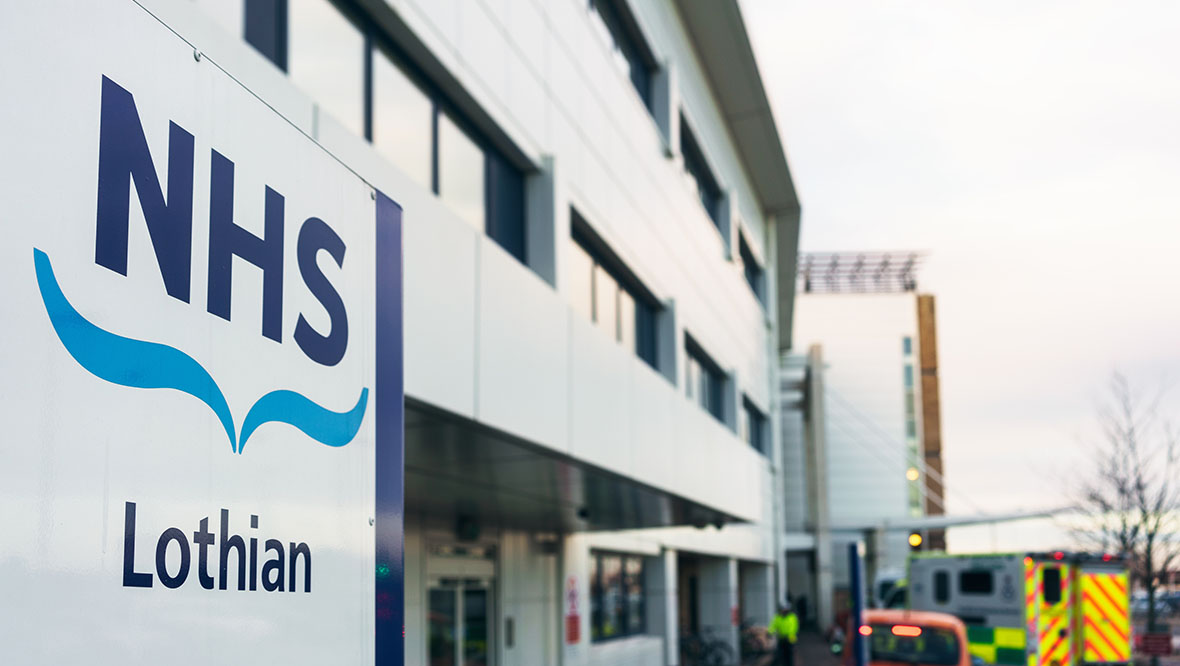 iStock
iStock

